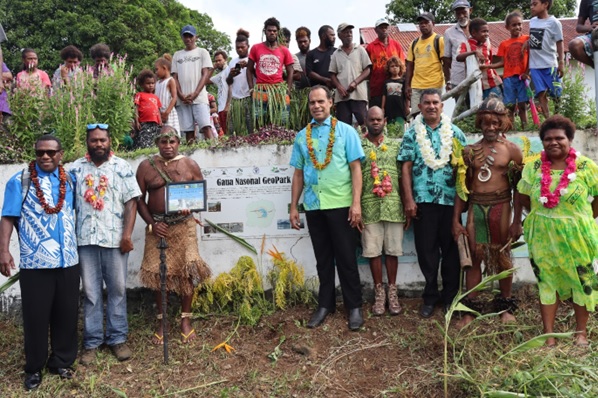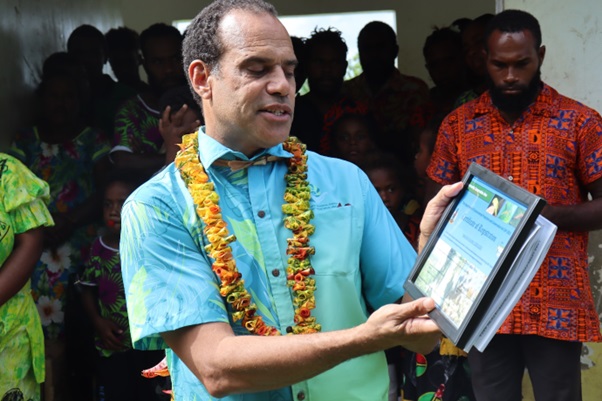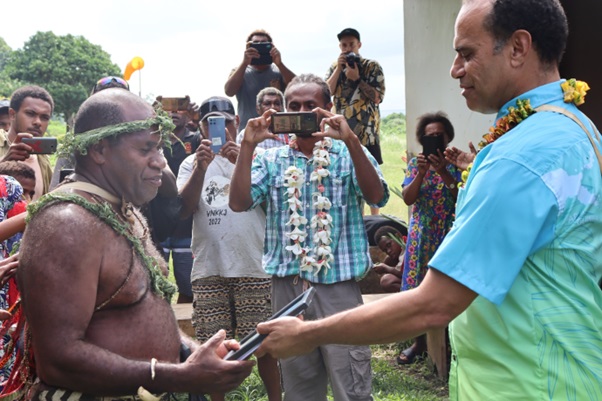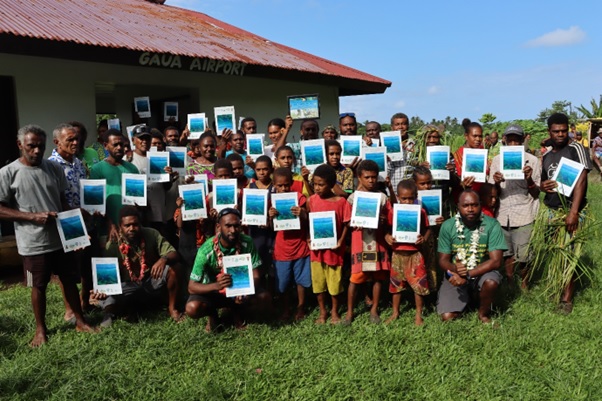Vanuatu’s Biggest Lake Registered as Community Conservation Area
Vanuatu’s biggest lake on Gaua island in Torba Province, Lake Letes, has been formally registered by the Government of Vanuatu as a Community Conservation Area.

Lake Letes is also Vanuatu’s first registered Ramsar site under the Convention on Wetlands, which is an international treaty that provides the framework for the conservation and wise use of wetlands and their resources.
The Certificate of Registration under Vanuatu’s Environmental Management and Conservation Act was formally handed over to the community of Gaua on Saturday by the Minister of Climate Change, who is also responsible for Environmental Protection and Conservation, Ralph Regenvanu.
The people of Gaua also witnessed the formal launching of the Management Plan for the Community Conservation Area, of which they will be very much involved.
The Environmental Management and Conservation Act outlines that an area can be protected and registered if it possesses unique genetic, cultural, geological or biological resources; or constitutes the habitat of species of wild fauna or flora of unique national or international importance.
In his address to the people of Gaua, Minister Regenvanu stated that the lake is also another potential World Heritage Site for Vanuatu, administered under the United Nations Educational, Scientific and Cultural Organisation (UNESCO).
He acknowledged the work of the Management Committee for working towards eventual registration of the Community Conservation Area.
“There are other community conservation areas, but the registration of Lake Letes is the biggest community conservation area registered that has in it the biggest lake in the South Pacific,” the Minister said.
He continued that this conservation area is unique for its species of wildlife such as birds that include a lorikeet that is endemic to the area as well as plants and eel.
“That is why I am here today as minister responsible for environment of Vanuatu to participate today in recognition of the Government of Vanuatu’s registration of the conservation area and hand over the certificate to the Management Committee to show that (the area) is now recognized under the law.
“What this means is that the Government will make efforts now to seek assistance through projects, for Gaua island, that will help and enhance standard of living for the community and at the same time protect the conservation area,” the Minister said.
Department of Environmental Protection and Conservation’s (DEPC) Principal Officer for Biodiversity and Conservation, Rolenas Baereleo, said this is Vanuatu’s 12th conservation area.
“The first conservation area was registered in June 2, 2004 and the 12th is registered on June 15, 2023,” she said.
On the other hand, DEPC’s Senior Officer for Conservation, Dean Wotlolan, revealed that Gaua island does not only have the biggest lake, as now it also has the biggest conservation area in Vanuatu that is just over 8,000 hectares.

Meanwhile, Minister Regenvanu has announced, as Minister responsible for energy, that a planned hydro project for Gaua will no longer proceed as proposed due to the high costs involved and low population to sustain its management.
However, the Minister told the people of Gaua that a solar mini-grid will be established instead, in the area near the airport and a second solar mini-grid will be established to service populated areas where there is a school and health centre on the island.
He assured the community that the funding for the solar mini-grid is available to proceed.


